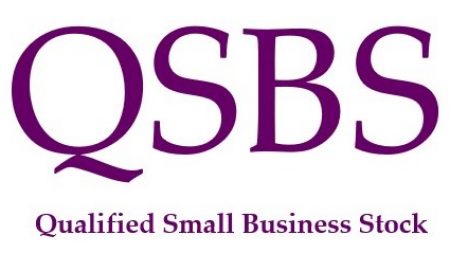How do you pay zero federal tax on up to $10,000,000? Invest in a qualified small business.
General speaking, a qualified small business is:
- A domestic C corporation;
- Which, at all times up to the time immediately following the issuance of your stock, had less than $50M in cash plus adjusted asset basis;
- Which is not a services business.
In addition, to get the favorable rate:
- You must have received your stock directly from the corporation in exchange for cash, services, or property other than stock that was not QSBS.
- The corporation cannot have repurchased a significant amount of its own stock within too close proximity to the issuance of your stock.
- The corporation must meet the “active business” test, during substantially all of your holding period.
The active business test puts limits on inactive assets like cash, stock, and real estate that the corporation can hold but there’s a fair amount of wiggle room. Specifically:
- The corporation need only meet this test during substantially all of the stockholder’s holding period (which I would guesstimate to be at least 4 out of 5 years). So, it is not fatal if the corporation violated the active business test temporarily.
- Cash and cash equivalents like T-bills have a 20% of value cap assuming they are the corporation’s only inactive asset. If a corporation has been in existence for more than two years, it can hold additional cash and cash equivalents up to 50% of value if reasonably needed for working capital or certain R&D reasons (so 50% + 20% = 70%).
- A corporation fails the active business test during any period >10% of the value of its assets are stock in a non-subsidiary, unless held for working capital needs. Meaning there is a separate 10% cap (that also counts against the 20%), and if it’s using the working capital exception 60% (50% + 10%).
- A sweep account that moves cash into short-term investments would presumably fall under this prohibition.
- A corporation fails the active business test during any period >10% of the value of its assets are in real estate not used for the active business. I don’t think this restriction gets to take advantage of the working capital exception.
Hypo: Company ABC is worth $10M and has been in existence greater than 2 years.
- It can have $2M in cash and be ok if that is its only inactive asset.
- Or it can have $1M in stock plus $1M in cash.
- Or if it needs additional funds for its reasonable working capital needs it could have up to $6M in cash or stock plus $1M more in cash.
- It cannot have greater than $6M in equity of a non-subsidiary. Whether a money market or sweep account is prohibited, I think, would depend on whether this is just a cash account with a nice interest rate, or is actually temporarily holding equity at night or whenever.
- It cannot have greater than $1M in non-active real estate.
See also IRC 1202(e)(6), below. [1]
Mike Baker frequently advises with respect to qualified small business stock. He possesses a breadth and depth of experience in tax and employee benefits & compensation law that spans multiple decades. For additional information, please contact mike@mbakertaxlaw.com.
[1] IRC 1202(e)(6) Working capital. For purposes of paragraph (1)(A), any assets which—
(A) are held as a part of the reasonably required working capital needs of a qualified trade or business of the corporation, or
(B) are held for investment and are reasonably expected to be used within 2 years to finance research and experimentation in a qualified trade or business or increases in working capital needs of a qualified trade or business,

